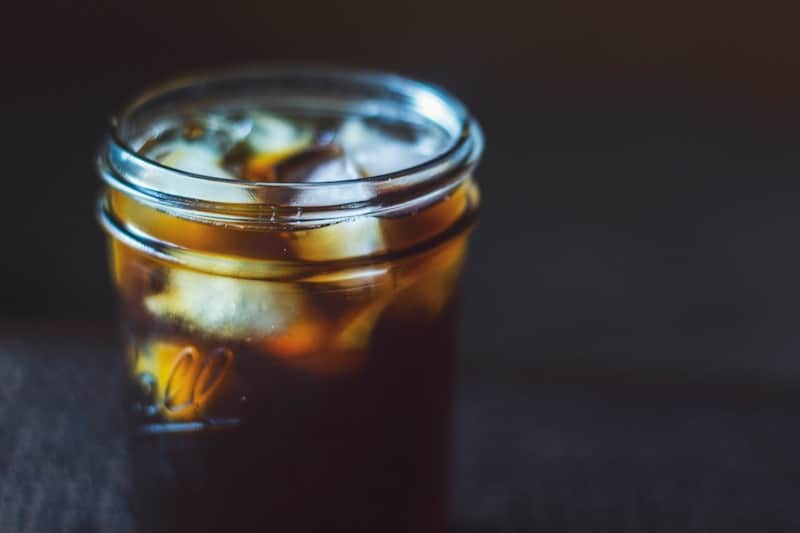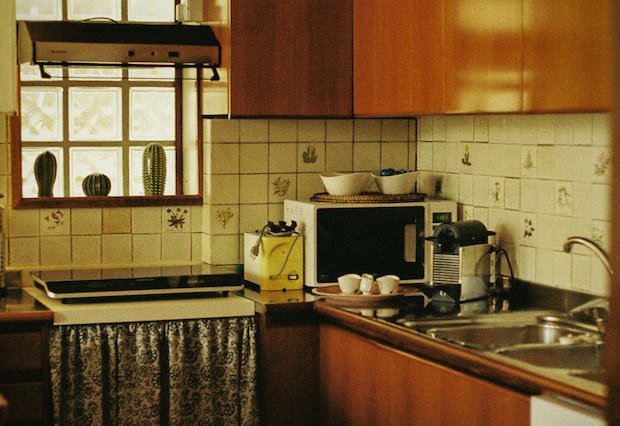Just so you know, as an Amazon Associate we earn from qualifying purchases made via bold red links, buttons or images.
Last Updated on December 3, 2023
A common misconception has arisen that cold brew coffee should only be delivered cold. And while it’s true that there are things you should and should not do with certain types of coffee, you have some leeway with cold brew. It gives you options.
Can you heat cold brew coffee?
Yes, you can heat cold brew coffee. It usually comes in concentrated form, so adding hot water simply heats it up and dilutes the concentrate to make it more like a typical cup of coffee. You can control the strength of your hot coffee by adjusting the amount of hot water you add.

In this post we reveal our best methods and tips for turning your cold brew into a cup of coffee that can brighten any day.
Before we share our secret, let’s give you the rundown on cold brew.
What is cold brew?
Cold brew coffee is a unique type of coffee that is smooth, versatile and has a growing cult following for good reason. It is typically made in concentrated form, allowing for maximum flexibility without sacrificing any of its bold flavors. The name “cold brew” refers to the process by which this coffee is made. The coffee beans are soaked in cold water rather than hot water to bring out the flavor.
Using cold water instead of hot water takes longer—usually anywhere from 12 to 18 hours—but it soaks up all the flavor the beans have to offer. The cold water also leaves the bitter notes in the bean, resulting in a smoother taste and mouthfeel.
Sophisticated cold brew coffee makers that allow you to brew easily at home have been coming onto the market. Some, like the GrowlerWerks uKeg, even allow you to infuse your brew with nitrogen for a “nitro cold brew” that has a creamy, bubbly head like Guinness stout.
GrowlerWerks uKeg Nitro Cold Brew Coffee Maker
We recommend some great beans for cold brew in another post.
Origins
Although the origins of cold brew coffee are unclear, the earliest documentation of coffee being made with cold water comes from Japan.
In the U.S., cold brew coffee has a strong history in New Orleans. It became more popular when companies such as Blue Bottle and Stumptown embraced the techniques and made it more available to everyone. But it wasn’t until Starbucks debuted their cold brew coffee in 2015 that cold brew coffee became more mainstream.
![]()
This method of making coffee can be found nearly everywhere now. There are even shelf-stable concentrate options available in grocery stores. If you are like me and are super picky about the way you enjoy coffee, you can easily make your own.
Is cold brew the same as iced coffee?
Packaging can be so deceptive these days, we wouldn’t blame you for wondering whether cold brew coffee is just a ploy to rebrand iced coffee as something else.
However, cold brew is undoubtedly different from iced coffee. They differ mostly in the way they are made, and they taste quite different.
Iced coffee starts off hot and is cooled in the refrigerator or poured over ice after brewing. Unlike cold brew coffee, iced coffee is brewed using hot water. Cooling hot coffee to make iced coffee comes with certain drawbacks. For example, pouring coffee over ice can greatly dilute the flavor of the coffee and give you that dreaded watered-down coffee taste.

With cold brew coffee, since the beans are steeped in cold water, the coffee has a strong, bold flavor without your having to cool the coffee first.
Cold brew coffee typically has a unique taste that no other method can produce. Many say that the taste is smoother, less bitter, and more chocolatey in flavor. It is truly a distinct taste, and may not be for everyone.
Is cold brew less acidic?
This is a topic of much debate. Ever since cold brew has exploded into the marketplace, marketers have made claims that this coffee is less acidic and will benefit those whose stomachs are sensitive to coffee. It has practically become gospel. However, a peer-reviewed study in 2018 by researchers from Thomas Jefferson University found little difference in acidity between cold brew and hot brew.
Their findings were summarized by Daily Coffee News.
Benefits of heating cold brew coffee
If you are in a rush in the morning, using cold brew concentrate for hot coffee is actually a really convenient method for getting your fix. You can make a homemade batch of cold brew over the weekend and simply add hot water whenever you need it.
Unlike regular hot-brewed coffee, adding hot water does not dilute the coffee too much because cold brew itself is highly concentrated.
How to enjoy cold brew hot
Heat it on the stove
I like to call this the “barista” method since it makes me feel most like a coffee connoisseur. This is the most difficult method in my opinion, since it can be hard to get the optimal temperature for bringing out the flavor of the coffee. You can use anything from a kettle to a small saucepan and apply low heat in order to prevent burning.
Dilute it with boiled water
This is the most straightforward method of heating cold brew coffee. All you need to do is boil some water and add it to your cold brew concentrate. Pro tip: Heat up extra water and pour some into your cup first to preheat the cup. This helps the coffee gradually heat up without shocking it with extreme temperatures.
Microwave your cold brew
I don’t know why so many people hate on the microwave. Heating coffee in the microwave is my preferred method because it’s so quick and gets the job done. The only step you need to do is add a bit of water to your cold brew for dilution and then pop it into the microwave.

In my microwave it takes about a minute, but they’re all different so experiment until you nail the timing. Then you’ll be able do it on auto-pilot before you’ve even really woken up.
And that’s really it. You now know the secret to making the perfect cup of hot cold brew.
Will it taste different?
When warming up or even reheating coffee, certain chemical reactions occur that can slightly alter the taste and quality.
When heat is applied, chemicals in the coffee react with oxygen to break down the flavor more quickly. The unique process of making cold brew means that cold water has slowed down the oxidation of molecules within the coffee. Even when you heat up your cold brew, this “aging” happens much slower than it does for hot-brewed coffee. There may be a slight change in taste, but it will be less pronounced than if you were to re-heat hot-brewed coffee.
Aside from all the scientific reasons as to why cold brew makes a great cup of coffee, you need to try this and see for yourself what a difference it makes. If you are a fan of cold brew coffee and want something warm during the cold winter months, try this easy “recipe” out.
Image at top: © Sage Ross | Creative Commons

